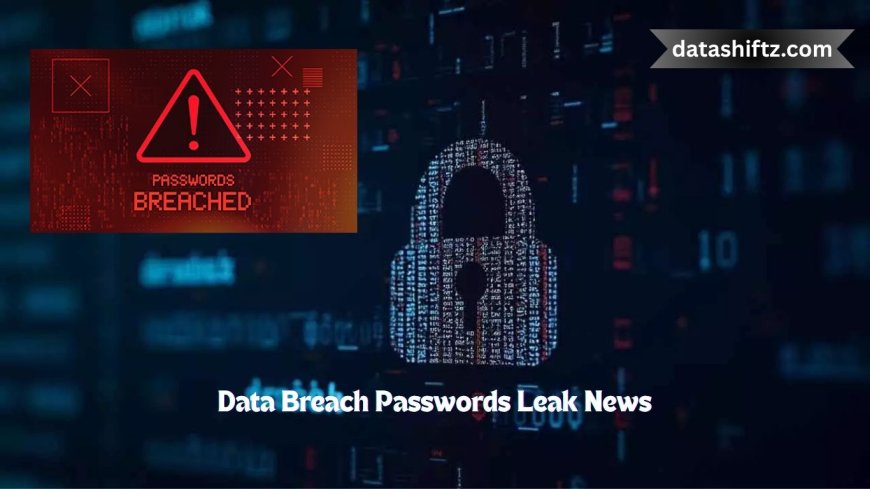Data Breach Passwords Leak News: What You Need to Know

In today’s digital era, data breaches and password leaks have become an alarming and all-too-common threat. As businesses and individuals increasingly rely on online platforms, the risk of sensitive information falling into the wrong hands grows exponentially. Recent news surrounding data breaches and leaked passwords has underscored the importance of cybersecurity awareness and proactive measures.
Understanding Data Breaches and Password Leaks
Data breaches occur when unauthorized parties gain access to confidential information stored by organizations, often including personal data, login credentials, financial details, and more. Password leaks are a specific type of data breach where user passwords are exposed, sometimes accompanied by associated usernames or emails.
These leaks can have devastating consequences — from identity theft and financial fraud to corporate espionage and loss of consumer trust. In many cases, hackers publish these passwords on the dark web or forums, enabling cybercriminals worldwide to exploit the data.
Recent High-Profile Data Breach Cases
In the past year, several major companies have suffered from password leaks that affected millions of users. Below is a summary table of some of the most notable breaches:
| Company | Date of Breach | Number of Accounts Affected | Type of Data Leaked | Impact |
|---|---|---|---|---|
| MegaSocial | March 2025 | 120 million | Usernames, passwords, emails | Account takeovers, phishing campaigns |
| ShopZone | January 2025 | 50 million | Passwords, credit card info | Financial fraud, unauthorized purchases |
| CloudDrive | February 2025 | 75 million | Passwords, personal files | Data theft, blackmail attempts |
| GameWorld | April 2025 | 30 million | Usernames, passwords, IP addresses | Compromised user accounts, DDoS attacks |
These breaches have caused widespread concern and prompted companies to reinforce their cybersecurity defenses. For users, the exposure of passwords means an urgent need to reassess online security practices.
Why Are Password Leaks So Dangerous?
Passwords serve as the first line of defense for protecting personal and professional data. When these credentials are leaked, attackers can:
-
Gain Unauthorized Access: Cybercriminals use leaked passwords to access user accounts on the same or different platforms, especially if password reuse is common.
-
Launch Phishing Attacks: Knowing valid emails and passwords allows hackers to craft convincing phishing emails to trick users into revealing more information.
-
Commit Financial Fraud: Access to online banking or shopping accounts can lead to direct monetary losses.
-
Spread Malware: Compromised accounts can be used to distribute malware or ransomware across networks.
-
Damage Reputation: Businesses suffer significant brand damage and legal repercussions when customer data is leaked.
Common Causes of Password Leaks
Understanding how these leaks happen is crucial in preventing future incidents. Here are some of the primary causes:
-
Weak Passwords: Simple or commonly used passwords are easier for hackers to crack.
-
Password Reuse: Using the same password across multiple sites magnifies damage if one site is compromised.
-
Phishing Scams: Deceptive emails or websites trick users into revealing passwords.
-
Malware: Keyloggers and spyware capture login credentials.
-
Insecure Storage: Companies failing to encrypt passwords properly make data easy to extract.
-
Third-Party Vulnerabilities: Breaches in a vendor’s system can cascade to other connected platforms.
Protecting Yourself from Password Leaks: Best Practices
The rise in data breaches and leaked passwords demands a proactive approach to cybersecurity. Here are essential steps individuals and businesses should take:
For Individuals:
-
Use Strong, Unique Passwords: Create complex passwords with a mix of letters, numbers, and symbols for each account.
-
Enable Multi-Factor Authentication (MFA): Adding a second verification step significantly improves account security.
-
Regularly Update Passwords: Change passwords periodically, especially after a breach notification.
-
Avoid Reusing Passwords: Each online service should have its own password.
-
Use a Password Manager: Tools like LastPass or 1Password can generate and securely store passwords.
-
Monitor Accounts for Suspicious Activity: Be vigilant for unexpected logins or communications.
For Businesses:
-
Implement Strong Encryption: Store passwords using hashing algorithms with salts.
-
Conduct Regular Security Audits: Identify vulnerabilities before attackers do.
-
Educate Employees: Train staff on phishing and password best practices.
-
Deploy MFA Company-Wide: Make it a standard security measure.
-
Respond Swiftly to Breaches: Inform users and require password resets immediately.
-
Limit Third-Party Access: Secure integrations with vendors and partners.
Conclusion
Data breaches and password leaks are serious threats that continue to escalate in scale and sophistication. Staying informed about the latest incidents and implementing rigorous cybersecurity practices is essential to protect both personal information and corporate assets. Remember, your digital security is only as strong as your weakest password — so take action today to safeguard your online life.




























